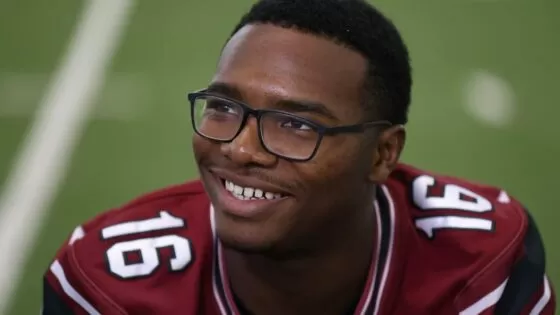The world of college football is no stranger to controversy. With the recent introduction of the NIL (Name, Image, Likeness) policy, the discussion surrounding it has reached a fever pitch. One particular incident that has caught the attention of football fans is the saga of quarterback Nico Iamaleava and his involvement with the head coach of Tennessee, Josh Heupel. The story has two sides – one that highlights the potential benefits of the NIL policy and one that raises concerns about its impact on the integrity of college sports.
On one hand, we have the ambitious quarterback, Iamaleava, who saw the NIL policy as an opportunity to fatten his fortune. His actions have been met with criticism, with many accusing him of prioritizing personal gain over the team’s success. However, can we blame him for wanting to capitalize on his name and talent? After all, college athletes have long been denied the right to profit from their own image and likeness, while the NCAA and universities have made millions off of their hard work and dedication.
On the other hand, we have Coach Heupel, who refused to bend under the pressure of Iamaleava’s demands. He stood by his principles and did not give in to the quarterback’s request for a $3.7M NIL deal. His decision has been hailed by many as a display of integrity and a reminder that college sports should not be reduced to a money-making venture. However, some have criticized Heupel for not supporting his player and not recognizing the potential of the NIL policy to benefit athletes.
So, who is right in this situation? The truth is, both sides have valid points. The NIL policy has opened up a world of opportunities for college athletes, giving them a chance to monetize their talents and build a brand for themselves. However, it also raises concerns about the commercialization of college sports and the potential for it to overshadow the true purpose of college athletics – to provide young athletes with an education and the opportunity to excel on and off the field.
But amidst all the controversy, there is a ray of hope in the form of Lanorris Sellers, a former college athlete turned entrepreneur. Sellers, who was also a victim of the previous NCAA policies, has turned his NIL deal into a heartfelt gesture to give back to the community. He has partnered with a major company to launch a program that will support underprivileged youth in his hometown.
Sellers’ actions are a reminder that the NIL policy has the potential to bring about positive change and make a difference in people’s lives. It is up to the athletes and their coaches to use this opportunity for the greater good. It is easy to get caught up in the hoopla surrounding the NIL policy and focus solely on personal gain. However, if used wisely, it can also be a powerful tool for athletes to make a positive impact on their communities and society as a whole.
Moreover, the NIL policy also highlights the need for proper regulations and guidelines to ensure fairness and prevent exploitation. The responsibility falls on the NCAA and universities to create a framework that allows athletes to benefit from the NIL policy while maintaining the integrity of college sports. It is a delicate balance that requires careful consideration and collaboration from all parties involved.
In conclusion, the saga of Nico Iamaleava and Josh Heupel is just one example of the two sides of the same coin – the good and the bad of the NIL policy. However, it should not overshadow the potential of this policy to bring about positive change. Lanorris Sellers’ actions serve as a reminder that the NIL policy can be used for more than just personal gain – it can be a force for good in the community. It is now up to the athletes and the institutions to make the most of this opportunity and strive towards a more equitable and beneficial future for college sports.

